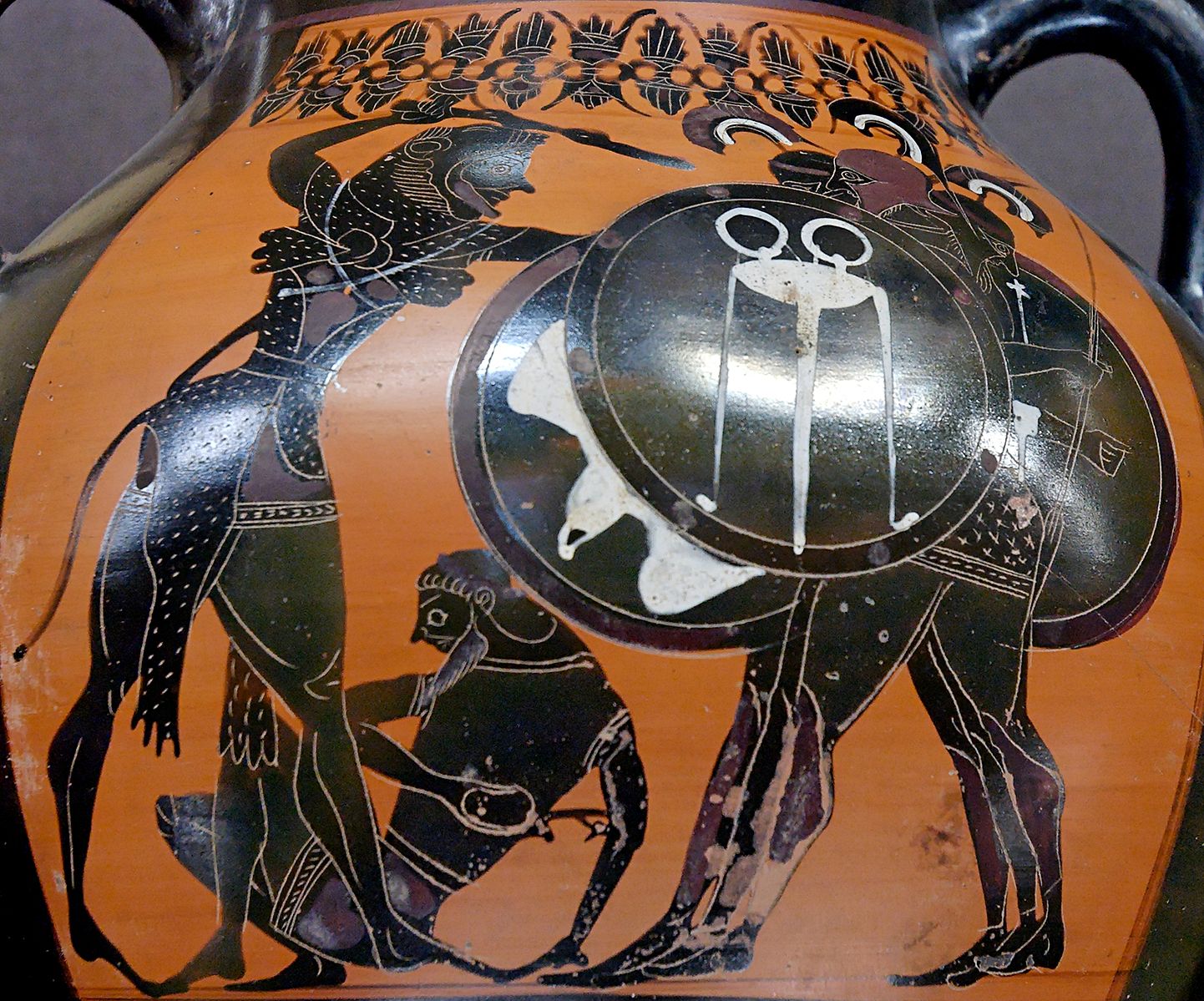
Front panel from a sarcophagus with the Labours of Heracles: from left to right, the Nemean Lion, the Lernaean Hydra, the Erymanthian Boar, the Ceryneian Hind, the Stymphalian birds, the Girdle of Hippolyta, the Augean stables, the Cretan Bull and the Mares of Diomedes. Luni marble, Roman artwork from the middle 3rd century CE.
Pseudo-Apollodorus describes the madness that necessitates Hercules’ quest for purification, which he accomplishes by obeying his cousin King Eursytheus:
[2.4.12] Now it came to pass that after the battle with the Minyans Hercules was driven mad through the jealousy of Hera and flung his own children, whom he had by Megara, and two children of Iphicles into the fire; wherefore he condemned himself to exile, and was purified by Thespius, and repairing to Delphi he inquired of the god where he should dwell. The Pythian priestess then first called him Hercules, for hitherto he was called Alcides. And she told him to dwell in Tiryns, serving Eurystheus for twelve years and to perform the ten labours imposed on him, and so, she said, when the tasks were accomplished, he would be immortal.
2.5.1] When Hercules heard that, he went to Tiryns and did as he was bid by Eurystheus.
These were the tasks:
- First Labour: Nemean lion
- Second Labour: Lernaean Hydra
- Third Labour: Ceryneian Hind
- Fourth Labour: Erymanthian Boar
- Fifth Labour: Augean Stables
- Sixth Labour: Stymphalian Birds
- Seventh Labour: Cretan Bull
- Eighth Labour: Mares of Diomedes
- Ninth Labour: Belt of Hippolyta
- Tenth Labour: Cattle of Geryon
- Eleventh Labour: Apples of the Hesperides
- Twelfth Labour: Cerberus
It isn’t always told this way. In Euripides’ Heracles, the tasks of Eurystheus were performed before the madness:
- The Lion of Nemea (359-363)
- The Battle of the Centaurs (364-374)
- The Hind of Artemis (375-379)
- The Mares of Diomedes (380-388)
- Cycnos (389-393)
- The Apples of the Hesperides (394-400)
- The Clearing of the Sea (400-402)
- Atlas (403-407)
- The Girdle of the Amazon, Hippolyta (408-418)
- The Lenean Hydra (419-422)
- The Cattle of Geryon (423-424)
- The bringing back to earth of Cerberus
but Hera’s jealousy remains. After he commits the goddess inspired slaying of his sons and wife, he leaves as an exile from Thebes to go with Theseus to Argos.
IRIS
Courage, old men! she, whom you see, is Madness, daughter of Night, and I am Iris, the handmaid of the gods. We have not come to do your city any hurt, but against the house of one man only is our warfare, even against him whom they call the son of Zeus and Alcmena. For until he had finished all his grievous toils, Destiny was preserving him, nor would father Zeus ever suffer me or Hera to harm him. But now that he hath accomplished the labours of Eurystheus, Hera is minded to brand him with the guilt of shedding kindred blood by slaying his own children, and I am one with her. Come then, maid unwed, child of murky Night, harden thy heart relentlessly, send forth frenzy upon him, confound his mind even to the slaying of his children, drive him, goad him wildly on his mad career, shake out the sails of death, that when he has sent o’er Acheron’s ferry that fair group of children by his own murderous hand, he may learn to know how fiercely against him the wrath of Hera burns and may also experience mine; otherwise, if he escape punishment, the gods will become as naught, while man’s power will grow.
